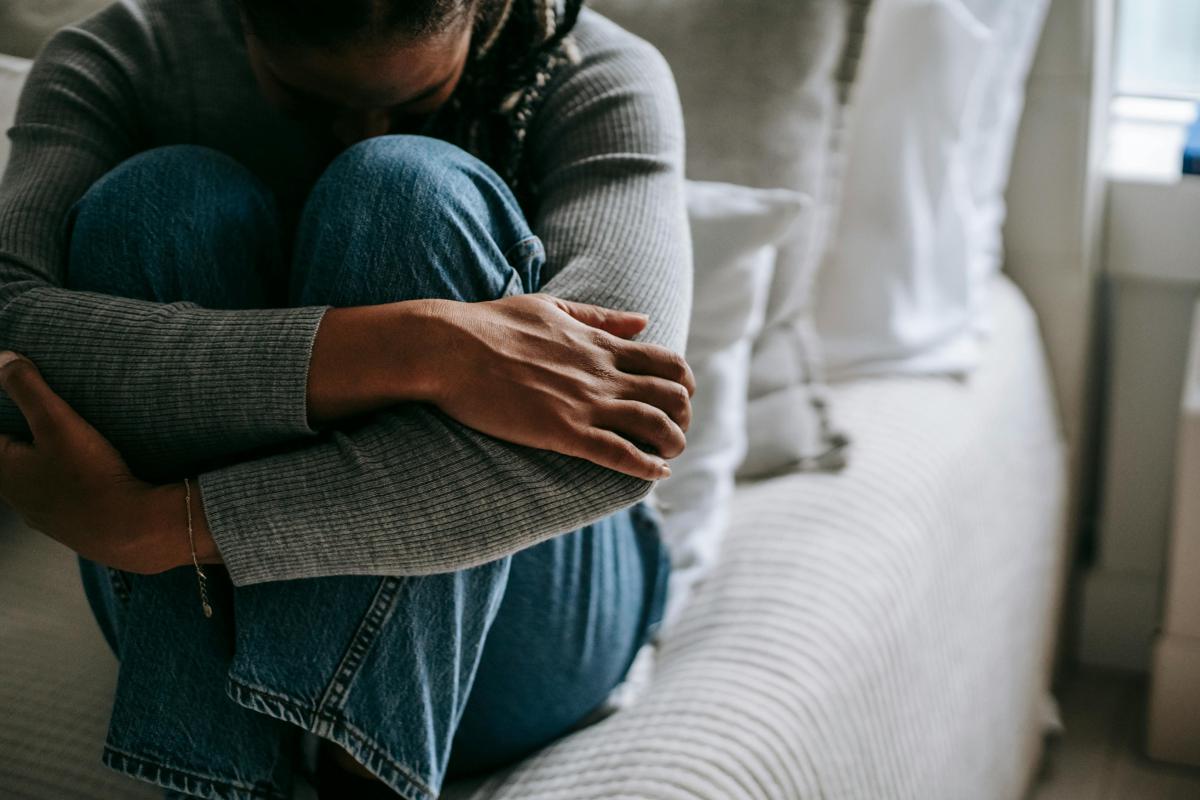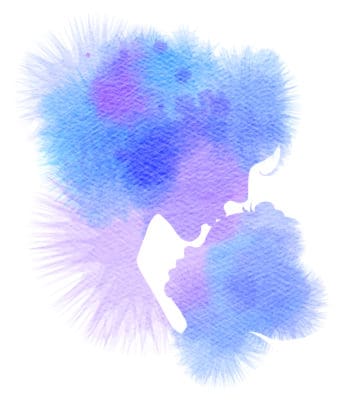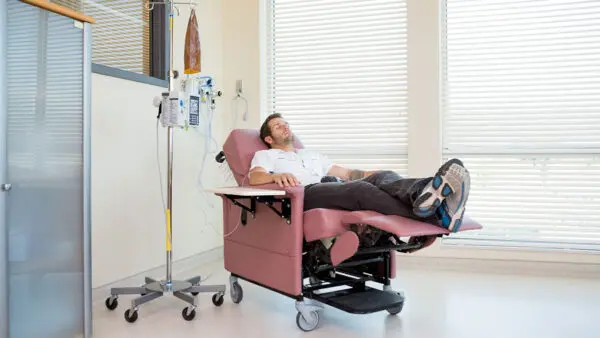The exploration of psychedelics like psilocybin and LSD as a potential treatment in mental health is more than a trend; it’s a burgeoning field that merges ancient wisdom with cutting-edge science. This article goes deep into the heart of this revolutionary approach, spotlighting psychedelics as a potential breakthrough in the treatment of depression and anxiety. We’ll explore a landscape of compelling research, emerging trends, and important safety considerations, offering a variety of insights into how these ancient medicines are being applied in modern therapeutic settings.
As we explore this topic, you’ll gain an understanding of how psychedelic therapy might help with depression and anxiety, while also learning about its complexities and the responsibilities that come with its use.
Psychedelics for Depression and Anxiety
The latest medical studies have shown magic mushrooms’ and psilocybin’s ability to quickly reduce feelings of anxiety, and depression, particularly in patients with treatment-resistant major depressive disorder, especially in cases where traditional medications and antidepressants have failed. When used in combination with therapy and a holistic integration approach, magic mushrooms’ and Psilocybin’s effectiveness is enhanced leading to profound therapeutic insights, relief, and emotional healing. However, magic mushrooms and psilocybin are not the only psychedelics used for depression and anxiety. Others include:
- LSD (Lysergic acid diethylamide): Though more commonly associated with its hallucinogenic properties, it has been studied for its potential in treating depression, especially in microdoses.
MDMA (Methylenedioxymethamphetamine): Primarily researched for treating PTSD, it has also shown promise in alleviating depression by enhancing emotional empathy, compassion, and connectedness.
Ayahuasca: A psychoactive brew with DMT, gaining attention for transformative experiences is being studied for its potential therapeutic effects in treating depression and anxiety.
Ketamine: Originally used as an anesthetic, it has been repurposed in recent years for its potential in rapid-acting antidepressant effects, especially in treatment-resistant depression cases.
Each of these substances has shown transformational potential in clinical and therapeutic settings. However, it is important to note that their use should be guided by a trained facilitator due to their powerful effects and potential legal implications. For ayahuasca in particular, it is advisable to seek out a shaman with an indigenous background to guide the process.
Can Psychedelics Help Treat Stubborn Depression?
While more research is needed on this topic, magic mushrooms and psilocybin have shown promise in treating stubborn depression. It allows individuals to step outside of their internal narrative, offering new perspectives and potential relief from depressive symptoms. Some clinical studies have demonstrated its ability to significantly reduce depressive symptoms, with effects lasting for several months post-treatment.
Are Psychedelics Better Than Antidepressants?
The comparison between psychedelics and traditional antidepressants is a complex and nuanced topic. Psychedelics like magic mushrooms and psilocybin have already garnered significant interest for their potential to produce rapid and substantial improvements in mood and psychological well-being, particularly in cases of treatment-resistant depression. This contrasts with many conventional antidepressants, which typically require ongoing daily use and may take weeks to become effective. Additionally, traditional antidepressants are often associated with various side effects like weight gain, suicidality, emotional blunting, and sexual dysfunction, which can impact the individuals’ quality of life.
The way these substances interact with the brain is fundamentally different from that of traditional antidepressants. While antidepressants generally work by regulating neurotransmitters like serotonin to alleviate symptoms, psychedelics appear to create a kind of ‘brain reset’, potentially offering a more lasting change. It’s also important to consider the legal and accessibility issues surrounding psychedelics. Unlike antidepressants, which are legal and widely available, psychedelics are restricted and illegal in many parts of the world, limiting their use to specific, controlled research or therapeutic contexts.
Are Psychedelics Better Than Anti-Anxiety Medications?
Like depression and psychedelics, the question of whether psychedelics are better than traditional anti-anxiety medications is a subject of ongoing research and debate. However, psychedelics such as magic mushrooms, psilocybin and LSD have been explored in recent studies for their potential to treat anxiety, particularly in cases where traditional treatments have been ineffective. These substances are thought to work by inducing profound changes in perception and thought, which can lead to lasting changes in behavior and emotional state.
Comparing psychedelics to conventional anti-anxiety medications isn’t straightforward. Traditional anti-anxiety drugs, such as benzodiazepines, are known for their fast-acting relief of acute anxiety symptoms but can be associated with side effects like dependency and tolerance over time. Psychedelics, on the other hand, may offer a different approach by potentially addressing the underlying causes of anxiety through transformative psychological experiences. These experiences, often guided in therapeutic settings, might contribute to long-term improvements in mental health. It’s important to note that the use of psychedelics in treating anxiety is still under investigation, and these substances are not widely legal or available for medical use in many parts of the world. Additionally, the experience with psychedelics can be intense and, in some cases, challenging, necessitating a controlled environment and professional guidance.
At the end of the day, whether psychedelics are ‘better’ than anti-anxiety medications is a decision that depends on individual factors, including the nature and severity of the anxiety, personal health history, and preferences.
Microdosing Psychedelics for Depression and Anxiety
Microdosing psychedelics has gained popularity as a potential treatment for depression. While comprehensive research is still emerging, anecdotal reports and preliminary studies suggest that microdosing may improve mood and cognitive function, potentially offering a more manageable approach than full-dose treatments. Microdosing psychedelics may also be beneficial for anxiety. Magic mushrooms, psilocybin and LSD, when taken in small, sub-perceptual doses, have been reported to alleviate anxiety symptoms. However, LSD’s stimulatory effects might exacerbate anxiety in some individuals, suggesting that magic mushrooms and psilocybin could be a more suitable option for anxiety treatment.
How to Choose the Best Psychedelics for Anxiety and Depression
Determining the most suitable psychedelic for treating anxiety and depression is a complex process that depends on various factors. These factors can broadly be categorized into individual-specific and treatment-specific considerations:
Individual Biochemistry and Genetics
Every individual’s body reacts differently to psychedelics, influenced by their unique biochemistry and genetic makeup. For instance, variations in serotonin receptors and the metabolism of substances can significantly affect how one responds to a particular psychedelic.
Psychological Makeup and History
A person’s mental health history, including their experiences with anxiety and depression, plays a crucial role. Someone with a history of severe anxiety might respond differently to psychedelics compared to another with mild or episodic symptoms.
Current Medications and Health Conditions
Interactions between psychedelics and other medications, particularly psychiatric drugs, SSRIs, and antidepressants, are a critical consideration. Additionally, underlying health conditions, like heart problems or neurological disorders, can influence the safety and efficacy of certain psychedelics.
Tolerance Levels
Regular use of psychedelics can lead to tolerance, meaning higher doses might be needed to achieve the same effect. This is especially relevant in the context of microdosing, where maintaining sub-perceptual doses is key.
Set and Setting
The psychological state (‘set’) and the physical and social environment (‘setting’) in which psychedelic therapy occurs are pivotal. A supportive, controlled set and setting, and a positive mindset can significantly influence the therapeutic outcome.
Type and Severity of Symptoms
The specific characteristics of an individual’s anxiety or depression – such as the presence of panic attacks, the severity of depressive episodes, or the existence of other mental health issues – can guide the choice of psychedelic.
Personal Preferences and Expectations
An individual’s comfort with certain substances, their previous experiences with psychedelics, and their expectations from the treatment also play a role in determining the best choice.
Legal and Accessibility Considerations
The legal status of different psychedelics varies by region, which can affect availability and the setting in which they can be legally administered.
Guidance from Professionals
Finally, and most importantly, the involvement of professionals experienced in psychedelic therapy is crucial. This includes therapists, coaches, facilitators, or guides knowledgeable about psychedelics. They can assess all the above factors and recommend the most suitable psychedelic and treatment approach.
Choosing the right psychedelic for treating anxiety and depression is a personal decision that should be made with careful consideration and in consultation with a therapist, facilitator, coach, or guide knowledgeable psychedelic therapist.
Where Can I Get Psychedelic Treatment for Anxiety and Depression?
Psychedelic therapy, including treatments for depression and anxiety, is available through therapists, coaches, facilitators, guides, and in clinical settings, particularly in regions where such treatments have been legalized or decriminalized. Psychable.com offers a platform to connect with experienced psychedelic therapists, coaches, guides, and facilitators.
Safety Warnings
When considering psychedelic therapy for depression and anxiety, it’s essential to prioritize safety and exercise careful precaution. The therapy should be conducted under professional guidance or someone well-versed in psychedelics, considering the potential for intense emotional experiences and the need for a supportive environment. It’s important to undergo both preparation before and integration after your psychedelic experience. It’s also important to consider potential contraindications and the legality of such treatments in your area.
Frequently Asked Questions About Psychedelics for Anxiety and Depression
Can I Use Psychedelics for Depression Without Experiencing Hallucinations?
Microdosing offers a way to use psychedelics without hallucinogenic effects. This involves taking very small doses of substances like magic mushrooms, psilocybin, or LSD.
How Do Psychedelics Treat Depression?
Psychedelics like magic mushrooms, psilocybin, and LSD can alter brain chemistry and neural connections, potentially resetting patterns associated with depression. They often promote emotional breakthroughs and greater self-awareness when used with intention and in therapeutic settings.
Can Psychedelics Treat Anxiety?
Yes, psychedelics have shown promise in treating anxiety, particularly in conjunction with therapy and a holistic integration approach. They facilitate profound emotional and perceptual shifts that can be therapeutically beneficial.
What is the Best Psychedelic for Depression and Anxiety
Identifying the “best” psychedelic for treating depression and anxiety isn’t a one-size-fits-all matter; it’s highly personalized and depends on several nuanced factors.
Want to Learn More About Psychedelics for Depression and Anxiety?
Browse Psychable’s library of depression and anxiety resources.








